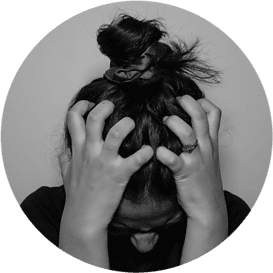Stress Definition?- It’s Not Just Physical

Indeed, there are numerous elements that impact an individual’s overall health, and stress is unquestionably among them. Because of stress within the body, many people have demonstrated a lack of concern when it comes to their health. Nonetheless, through effective education and mutual understanding, we can provide support to individuals facing significant health challenges and potentially save the lives of our loved ones. However, it’s essential to start by gaining a clear understanding of what stress truly entails. Many misconceptions exist regarding the definition of stress, which need to be addressed.
Commonly, individuals hold the belief that all forms of stress are inherently negative and can be entirely eradicated. They assume that by applying appropriate stress management techniques, stress can be controlled and even entirely prevented. However, it’s important to acknowledge that none of these notions are even remotely accurate. In this essay, I will not only define what stress truly entails but also provide some constructive strategies for stress reduction.

Having Knowledge Behind Stress
Given this, I find it imperative that we allocate some time to delve into the topic of stress—what it truly signifies and why it holds such paramount importance for our health and overall well-being. It is essential to initially comprehend the impact of stress on our health and wellness.
Stress is defined as a sudden feeling of being overwhelmed or unable to cope emotionally or mentally. This has a significant impact on your health, both physically and emotionally. Giving headaches, causing upset stomachs, and even causing mental illnesses. In brief, it pertains to the capability of effectively handling diverse challenges that may arise spontaneously.
The body experiences stress when it detects a potential threat, triggering the release of various stress hormones such as cortisol and adrenaline. During this response, the body enters a fight-or-flight state. Typically, there are observable signs of this state, including rapid heartbeat, shortness of breath, heartburn, and at times, heightened emotional reactions.
“It’s always a good idea to do something relaxing before the body experiences significant stress.”
Adrenaline release triggers a multitude of physiological reactions. The body elevates its heart rate, respiratory rate, and glycogen levels to boost its energy utilization. This hormone redirects resources away from potentially vulnerable organs, serving as a protective measure when it’s released in response to stress.
Maintaining good health is a vital component of stress management. Consequently, your capacity to cope with life’s challenges depends entirely on your daily responses to them, which can be challenging at times.

Ultimately, stress isn’t always readily apparent, and it’s crucial to remain vigilant for its presence. Such as being emotional, having panic attacks, negative thinking, anxiety, being impatient, procrastinating, getting angry more easily, and even being sick a lot more often. When individuals possess a heightened awareness of stress indicators, they are in a better position to provide assistance to those who require it most.
The Stressful Health Code
Comprehending the nature of stress, its physiological impact on the body, and subsequently adopting the necessary measures to address it are integral components of the stress management strategy, enabling you to lead a healthy and vibrant life while effectively managing stress.
A life that is healthy in every manner can be attained by being knowledgeable about stress and competent in handling it.
Once you understand the origins of your stress, you can begin implementing crucial alterations to enhance your overall well-being. Consequently, your life and its outcomes will gradually begin to transform, underscoring the significance of this process.
How often do you find yourself taking more time to complete tasks, grappling with a lack of clarity, turning to stress eating, modifying your eating habits, or struggling to maintain focus? If these questions resonate with you, it’s likely that you are experiencing stress, influenced by various factors. Once you can openly acknowledge your stress, you can begin to explore ways to manage it more effectively, allowing you to move forward with your life. Adequate sleep is one approach to achieving this goal.
For individuals who have consistently faced challenges, like myself, it’s entirely possible to regain control over your challenging circumstances. In my personal journey, I prioritize maintaining a nutritious diet and ensuring sufficient sleep to effectively navigate any difficulties that may arise. These factors serve as some of the initial motivations for helping those who are experiencing stress.
It’s about Being able to Cope With the Pressure
Prior to my introduction to the structured approach to managing stress, I had experimented with various techniques to address both stress and my overall health. In my experience, I found that meditation, a relaxing shower/bath, exercise (which I still do), yoga, deep breathing, taking a break and slowing down, talking to someone, and getting outside helped me.
During the initial stages of my journey into understanding stress and its impact on health, I realized that it ultimately boils down to the ability to effectively manage whatever challenges come your way. We all require strategies for “Stress Management” to cope with stress. Typically, it takes an individual a month or two to develop the capacity to effectively handle what’s unfolding in their life.
However, if we lack an understanding of the stress code and effective coping mechanisms, we may inadvertently allow stress to exert control over our lives. This often manifests as anxiety, overeating, or profound despondency. Unfortunately, it can lead to a range of health issues, including severe migraines, diabetes, obesity, heart disease, and depression, among others.
Hence, it ultimately boils down to placing a premium on your health and ensuring that your stress levels remain manageable. Nonetheless, this doesn’t rule out the possibility of occasional stress or anxiety. The key is to maintain an awareness of your stress levels, enabling you to take the necessary measures to keep them in check.

The Acceptance That You Cannot Hide Your Stress
It’s possible to hide behind such intentions and persuade yourself that everything is fine as a consequence. While there may be some truth to this, it can be difficult to continue living as if everything is alright when your mental and emotional state is in disarray.
Many people “pretend” or “fake” their feelings, believing that it is better to be positive and all cherry acting like everything is fine by pretending that nothing is wrong, causing even more stress and anxiety to be trapped within the body.
However, in reality, individuals who bottle up their stress will eventually reach a point where they begin to confide in others. Suppressing stress only leads to heightened agitation, resulting in irritability and a reduced capacity to cope with various challenges.
Hence, while it might appear tempting to believe that you can evade your anxiety (which is achievable), I strongly discourage it. Avoiding dealing with life’s challenges in a constructive manner is not an effective approach to managing stress.
Choosing to disregard the problem is considered a more favorable option than confronting it directly.
Indulging in a Stress Management Scenario
In order to effectively address stress, you need to confront it head-on. When stress starts to dominate your life and becomes unmanageable, things can become quite challenging. That being said, I’ve gathered a few valuable tips for stress reduction and living the best life possible, which I believe will be highly beneficial to you.
1. Meditation: Indubitably, inducing a state of relaxation can significantly aid in managing your stress and alleviating any anxiety you might be experiencing. This involves unwinding, calming the body, and dispelling negative thoughts from your mind. I recommend practicing ten minutes of meditation both in the morning and evening. Ensure you do it in a serene, distraction-free environment—outdoors in nature is even more ideal.
Here’s a quick guide on How to Meditate.
2. Take a relaxing shower or bath: Any form of stress can be alleviated by indulging in a hot, steamy shower or even a bath enhanced with Epsom salts. This is due to the presence of oxytocin, a brain chemical that facilitates relaxation when exposed to warmth. Oxytocin aids in promoting relaxation by contributing to the body’s innate stress reduction mechanism.
3. Exercise: Exercise is not only beneficial for stress reduction but also for overall health. Venturing outdoors and engaging in physical activity releases endorphins, which impart a sense of vitality and enthusiasm, particularly in terms of stress reduction. Whether it’s a leisurely walk or an intense workout, the key is to get started without delay.
4. Try Yoga: Yoga falls under the category of exercise, but it uniquely fosters both physical and mental introspection. This leads to a state of relaxation and tranquility akin to meditation. However, yoga specifically targets and unravels the knots that serve as the underlying source of bodily stress. It not only alleviates stress but also enhances flexibility.
“Yoga relieves stress and strengthens the body over time.”
5. Learn to take a break: You seem quite occupied. It’s been suggested that it’s beneficial for both the body and mind to occasionally decelerate and take a break. The busyness often leads to tension, which is a common occurrence. Therefore, rather than incessantly working, why not take a break for a while? Doing so will enable you to relax and reset your emotions.
6. Let it all out: When there’s an overwhelming amount happening, we often experience stress because we internalize it all. Instead of keeping things to yourself, why not confide in someone you trust? Discussing it can bring a sense of relief. While you may not be able to alter the circumstances, sharing them through conversation can help alleviate some of the tension.
7. Go outside: Engaging in activities like hiking, strolling in the park, having a picnic, or simply appreciating the natural surroundings can be highly effective for diverting your attention. This is because being outdoors, especially in nature, has a calming and tranquilizing effect.
“Going outside is very peaceful and relaxes the body.”
These are just a few of the most significant strategies for handling stress, and there are numerous others. It’s essential to acknowledge that stress, whether positive or negative, is a natural aspect of life. With that said, it’s important to recognize that nobody is perfect, and stress is something that will ebb and flow. Your overall well-being truly hinges on how you manage it.
Now it’s your turn. Discover ways to maintain your fitness and well-being while living a life free from stress. Remember the importance of engaging in activities that promote relaxation and mindfulness in various aspects of your life. Prioritize your health as one of your top goals.
Interested in exploring further about embracing life? Then I suggest reading “How To Worry Less And Enjoy Life More”
If you have any questions about stress, please feel free to leave a comment below. I’m here to help, and I have a wealth of knowledge in this subject.
Related: How To Handle Stressful Situations Instead Of Living In Hope Of A Cure
When Worried Or Under Stress Get Moving.
Understanding Stress and Anxiety Relieving Ourselves of the Day-to-Day Routine
Never Give Up On Controlling Your Stress, Anxiety, And Depression.
Kiersti writes on self-love and personal development professionally. Over the past ten or so years, she has studied self-love and personal growth. Visit https://womansdailyneeds.com/ to learn more about what she does, and like her on Facebook at https://facebook.com/womansdailyneeds to keep up with her.


